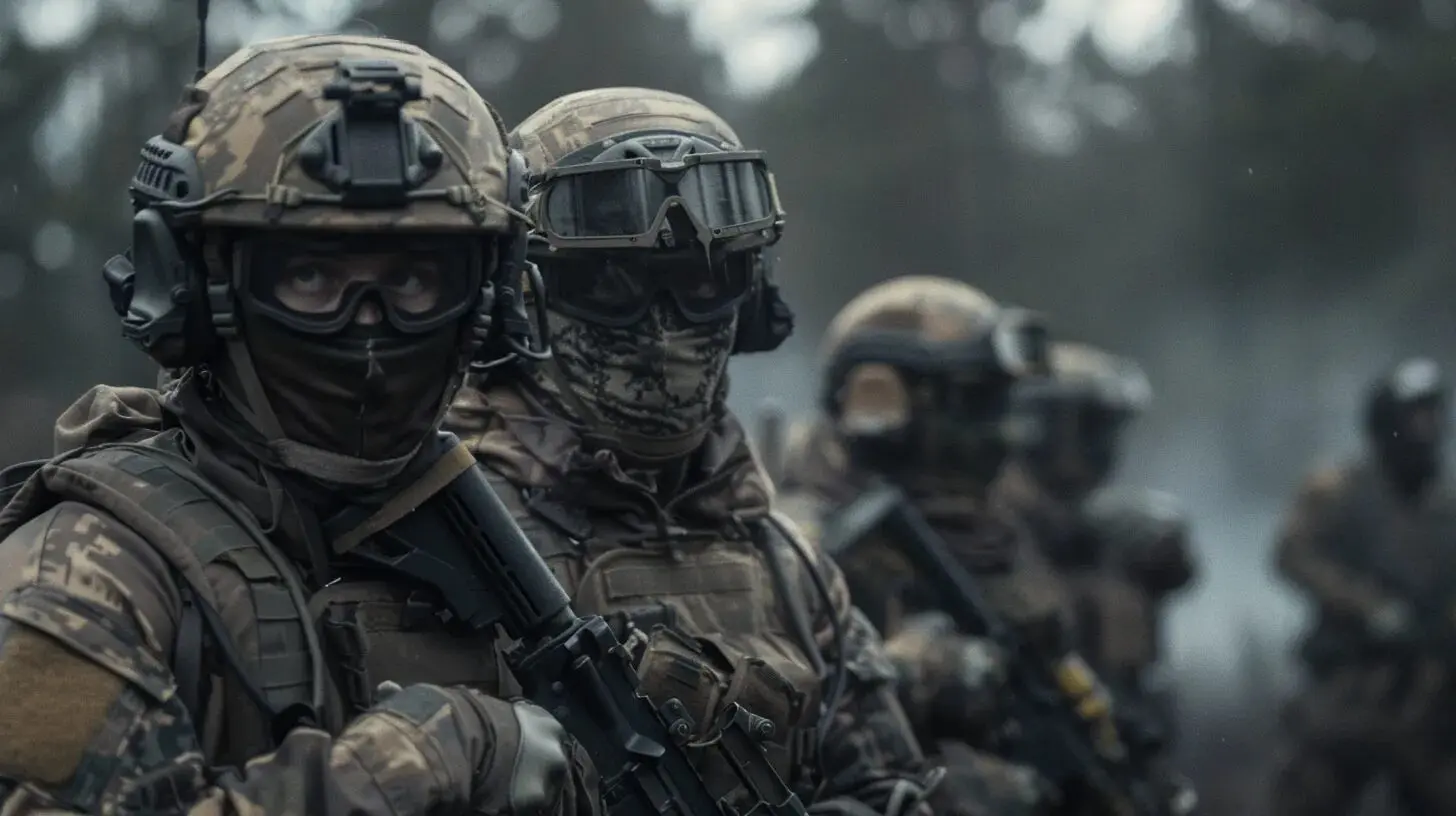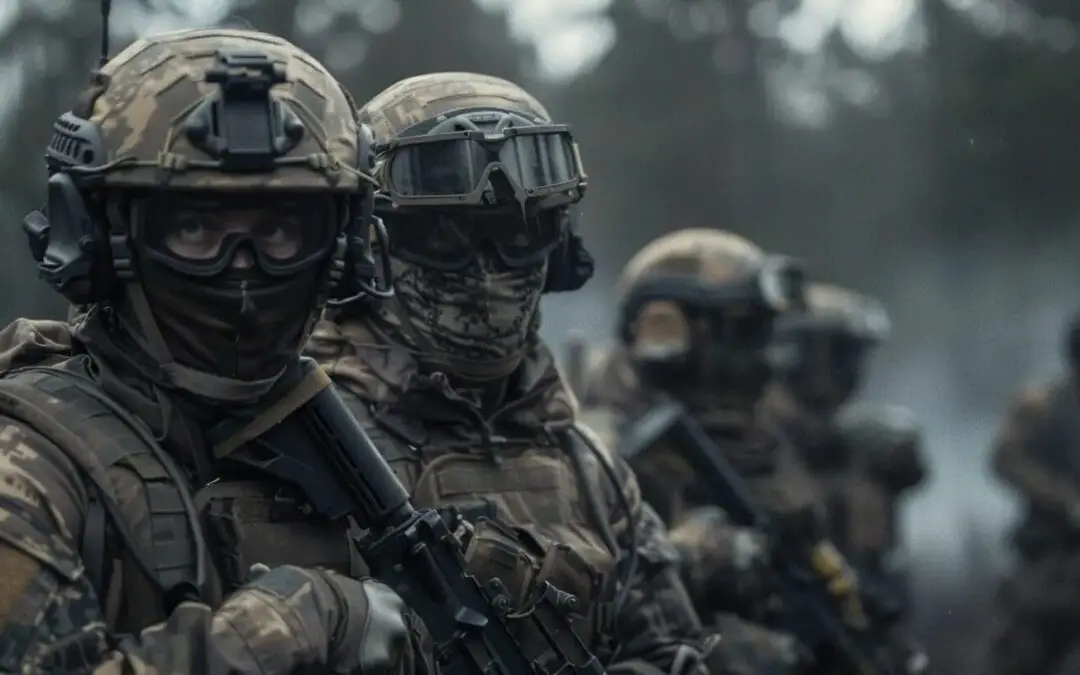What is an Army Special Forces Operations Sergeant (MOS 18Z)?
An Army Special Forces Operations Sergeant, designated as MOS 18Z, is a senior enlisted member of the Special Forces. They serve as the primary advisor to the detachment commander and are responsible for the operational readiness and effectiveness of the Special Forces Operational Detachment Alpha (ODA). This role involves extensive training, leadership, and operational expertise.
Duties and Responsibilities
The Special Forces Operations Sergeant oversees all aspects of the ODA’s operations, from mission planning to execution. They ensure that the team is prepared for a wide range of activities, including unconventional warfare, direct action, special reconnaissance, and foreign internal defense.
Importance of the Role
The effectiveness of the Special Forces teams heavily relies on the leadership and expertise of the Operations Sergeant. They provide guidance, supervise training, and ensure the team’s operational readiness, making them indispensable in high-stakes missions.
Certification and Qualifications for MOS 18Z
Certification Requirements
To become an MOS 18Z, soldiers must complete a rigorous selection process and obtain various certifications. This includes specialized training in areas such as unconventional warfare, advanced combat tactics, and leadership.
Qualifications
Candidates must have prior experience in Special Forces and hold an 18-series MOS. They must also meet specific physical and professional standards, demonstrating their ability to lead and perform under extreme conditions.

The Professional Path to Becoming a Special Forces Operations Sergeant
Enlisting and Initial Training
The journey to becoming an MOS 18Z begins with enlisting in the Army and completing basic and advanced individual training. Soldiers then progress to the Special Forces Assessment and Selection (SFAS) course, where they are evaluated on their physical and mental capabilities.
Advanced Training and Experience
After selection, soldiers undergo the Special Forces Qualification Course (SFQC), which includes training in various military specialties. Over time, they gain experience in operational roles, preparing them for the responsibilities of an Operations Sergeant.
Tactical Training and Skills Development
Tactical Expertise
Special Forces Operations Sergeants receive extensive training in tactical skills, including direct action, special reconnaissance, and foreign internal defense. This training is critical for executing complex missions and ensuring team safety.
Continuous Development
Tactical training is an ongoing process. MOS 18Z personnel regularly participate in exercises and simulations to hone their skills and adapt to new challenges. This continuous development is essential for maintaining operational effectiveness.
Leadership Responsibilities of a Special Forces Operations Sergeant
Supervising Operations
One of the primary roles of an MOS 18Z is to supervise operations for higher headquarters. They are responsible for planning and coordinating missions, ensuring that all aspects are meticulously organized and executed.
Providing Guidance
As senior leaders, Operations Sergeants provide guidance to both their team and commanders. They offer strategic advice, mentor junior soldiers, and ensure that the detachment operates cohesively.
Operational Duties and Mission Preparation
Planning and Execution
Operations Sergeants play a crucial role in mission planning and preparation. They develop detailed operational plans, coordinate logistics, and oversee the execution of missions, ensuring that objectives are met.
Team Coordination
Effective mission preparation involves coordinating with various team members and units. MOS 18Z personnel ensure that all elements are aligned and ready to perform their tasks, enhancing the overall mission success.
Special Forces Operations Sergeant in Combat
Combat Leadership
In combat situations, the Operations Sergeant leads by example, demonstrating courage and tactical proficiency. They make critical decisions under pressure, ensuring the safety and effectiveness of their team.
Combat Skills
MOS 18Z personnel are highly skilled in various combat techniques, from marksmanship to hand-to-hand combat. Their extensive training ensures they can handle any situation that arises during operations.
Supervising and Commanding Special Forces Teams
Team Leadership
The Operations Sergeant is responsible for the leadership and supervision of their team. They manage daily operations, conduct training, and ensure that all team members are prepared for missions.
Command Responsibilities
In addition to leading their team, Operations Sergeants often serve as the acting detachment commander. They make strategic decisions, coordinate with other units, and ensure that all operations align with the mission objectives.
The Role of Special Forces Operations Sergeant in Multi-National and Joint Operations
Joint Operations
Special Forces Operations Sergeants often participate in joint operations with other U.S. military branches and allied forces. They provide critical expertise and leadership, ensuring that all units work together effectively.
Multi-National Missions
In multi-national missions, MOS 18Z personnel play a key role in coordinating with foreign military forces. Their ability to manage complex operations and provide professional support is essential for mission success.
Career Advancement and Long-Term Opportunities in MOS 18Z
Advancement Opportunities
Career advancement for MOS 18Z personnel includes opportunities to take on higher leadership roles within the Special Forces and broader Army structure. They can move into positions such as battalion command sergeant major or even higher.
Long-Term Career Benefits
Serving as a Special Forces Operations Sergeant offers numerous long-term benefits, including advanced training, leadership experience, and the potential for higher-level command roles. This career path is both challenging and rewarding, offering opportunities for personal and professional growth.

